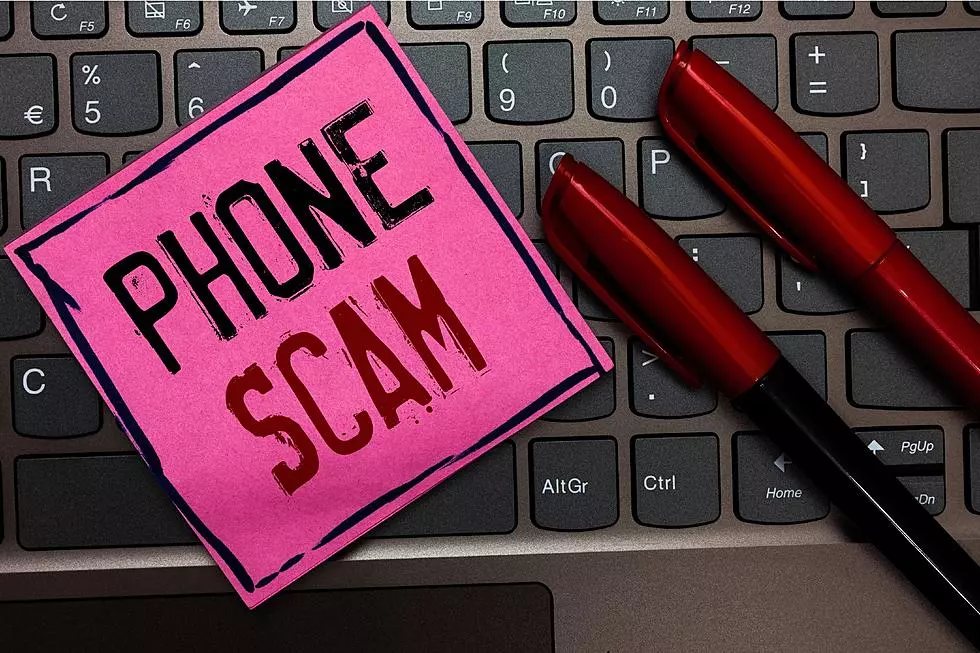
Received a Text About Outstanding Tolls in Louisiana? It’s a Scam
LAFAYETTE, La. (KPEL News) - While text message spam is nothing new, scammers are always coming up with new ways to try and trick you into giving them your money. One of the more recent scams involves an official-looking text with a legitimate-looking website.
Known as "smishing," this text message phishing attempt involves telling the victim they have an outstanding toll balance and have been hit with a major fee. It provides a link to a website that looks legit, but don't open it.

"Text-message phishing scams (also called 'smishing') are becoming more sophisticated," CNET, a tech-focused news outlet, reported recently. "Cybercriminals now have easy access to AI, which can be used to craft plausible messages from supposedly trustworthy sources such as your bank. The FBI's latest Internet Crime Report found that 298,878 complaints of phishing scams in 2023 resulted in almost $19 million in losses."
That certainly seems to be the case with this new scam, which has been reported on recently in several parts of the country. The text we've seen here in Louisiana looks like this:
"Louisiana toll services: We've noticed an outstanding balance of $11.69 on your record. To prevent a late fee of $50.00, please visit [website] to settle your invoice."
We're not providing a link to the website out of an abundance of caution, but it does read "SunPass Toll." To problem? SunPass is the toll system used in Florida. Louisiana, meanwhile, uses GeauxPass.
However, toll companies don't send you personal information through text. Instead, notices about fees are sent through the mail to the street address tied to your vehicle.
The language of the text message in Louisiana is identical to messages seen in other states.
What to Do When You Recieve Suspicious Texts
When you receive a suspicious text message, there are several things you should check for:
• Sender: Verify the identity of the sender. Be cautious if the sender's number or email address seems unfamiliar or suspicious.
• Content: Pay attention to the content of the message. Look for any language or requests that seem unusual, urgent, or too good to be true.
• Links: Avoid clicking on any links included in the message, especially if they are shortened URLs or lead to unfamiliar websites. These could be phishing attempts to steal personal information or install malware on your device.
• Attachments: Exercise caution when opening attachments, especially if they are unexpected or from unknown senders. Malicious attachments could contain viruses or other harmful software.
• Grammar and Spelling: Be wary of messages with poor grammar, spelling errors, or unusual formatting. Legitimate organizations typically use professional communication that is free of errors.
• Requests for Personal Information: Be cautious if the message requests sensitive personal information such as passwords, Social Security numbers, or financial details. Legitimate organizations typically do not request this information via text message.
• Context: Consider the context of the message. If it seems out of place or unexpected, it may be a scam or phishing attempt.
What the BBB Recommends
The Better Business Bureau has some tips if you find yourself in the middle of a scam like this.
1. If something sounds suspicious, call the company or check the company website directly. Don't click on links in an unexpected email – type the URL for the company into the browser or do a web search to find the right website.
2. Don't click, download, or open anything from an anonymous sender. This is likely an attempt to gain access to your personal information or install malware on your computer.
3. Question generic emails. Scammers cast a wide net by including little or no specific information in their fake emails. Always be wary of unsolicited messages that don't contain your name, the last digits of your account number or other personalizing information.

If you have any doubts about the authenticity of a text message, it's best to avoid interacting with it and report it to your mobile carrier or the appropriate authorities if necessary.
LOOK: FBI Warns Against These Dangerous Scams Spreading in Louisiana
More From News Talk 96.5 KPEL









